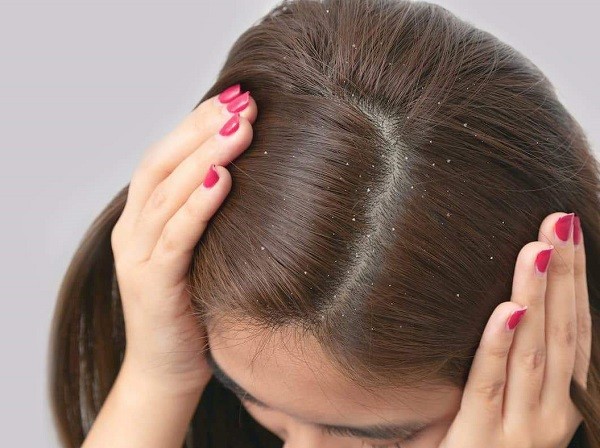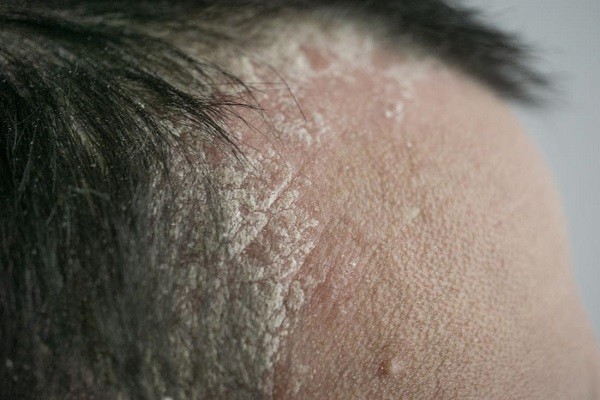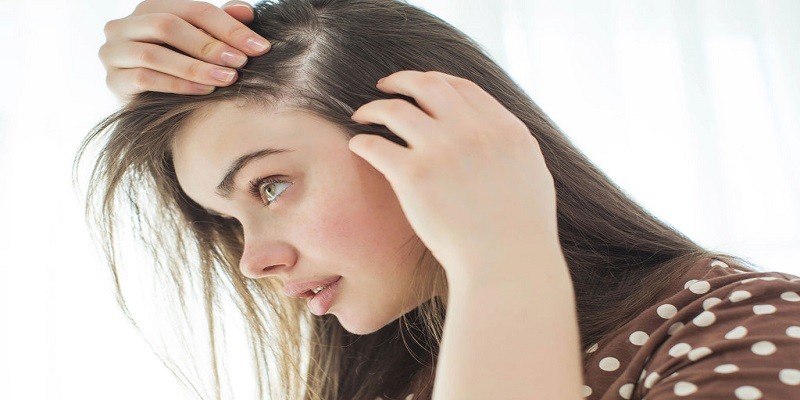Last Updated on June 18, 2025
Sores and scabs on the scalp can be caused by various conditions, including psoriasis, eczema, dandruff, and Ringworm. Treatment depends on the underlying condition but may include medicated shampoos, topical creams or ointments, oral medications, or light therapy.
In most cases, sores and scabs on the scalp are not serious and will eventually clear up with treatment. However, if they persist or worsen, it is important to see a doctor or dermatologist for further evaluation.
Psoriasis

Psoriasis is a chronic autoimmune condition that causes raised, red patches on the skin covered with white or silver scaling. The scalp is one of the most common places for psoriasis to occur, and it can cause intense itching, burning, and pain. Treatment for scalp psoriasis may include medicated shampoos, topical creams or ointments, oral medications, or light therapy.
Eczema

Eczema is a condition that causes the skin to become dry, itchy, and inflamed. It can be caused by various factors, including allergies, irritants, stress, and changes in temperature or humidity. While eczema can occur anywhere on the body, the scalp is one of the most common places to flare up. Treatment for eczema may include over-the-counter moisturizers and anti-itch creams, prescription topical corticosteroids or immunomodulatory, or oral antihistamines.
Dandruff

Dandruff is a common scalp condition that causes dead skin flakes to accumulate on the scalp. It can be caused by various factors, including dry skin, oily skin, fungus, or an overgrowth of yeast. Dandruff is usually not serious and can be treated with over-the-counter medicated shampoos. However, if dandruff persists or is severe, it is important to see a doctor or dermatologist for further evaluation.
Ringworm

Ringworm is a fungal infection that can affect the scalp, skin, or nails. It is characterized by a red, itchy rash that often appears in a ring-like shape. Ringworm is usually treated with oral antifungal medications. However, if the infection is severe, it may also require topical antifungal treatment.
Scalp scabs treatment differs depending on the underlying cause. For example, if a scalp scab results from an injury, it will eventually heal on its own. However, treatment may be necessary if an infection, such as Ringworm causes the scab. Treatment for Ringworm typically includes oral antifungal medications. In some cases, medicated sores on scalp shampoo or cream may also be prescribed.
Conclusion
The scalp’s sores and scabs can be painful, itchy, and unsightly. While most cases are not serious, it is important to see a doctor or dermatologist if they persist or worsen. Treatment for sores and scabs on the scalp will depend on the underlying condition but may include medicated shampoos, topical creams or ointments, oral medications, or light therapy.


